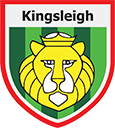Religious Education
Subject Intent
At Kingsleigh Primary school, our Religious Education is taught in accordance with the Bournemouth, Christchurch and Poole Agreed Syllabus for Religious Education (2023-2028). RE has a significant role for the development of our pupils’ spiritual, moral, social and cultural development. Therefore, we promote respect and open-mindedness towards others with different faiths and Worldviews. Our principle aim of teaching RE is to engage pupils in an enquiry approach where they can develop an understanding and appreciation for the beliefs, cultural practices, faiths and worldviews in the local, national and wider global community. Using a balanced approach to RE helps pupils to hold balanced and well-informed conversations about religion and belief.
Subject Implementation
In Reception, pupils encounter religions and worldviews through special people, books, events, places and objects. They listen to and talk about stories. Pupils are introduced to subject specific words and use their senses to explore beliefs and practices. They ask questions and reflect on their own feelings and experiences. They use their imagination and curiosity to develop their appreciation and wonder at the world in which they live.
In Key Stage One, pupils learn about different beliefs and the world around them. Building on prior knowledge, they encounter and respond to a range of stories, artefacts and other religious materials. They learn to recognise that beliefs are expressed in a variety of ways and continue to build specialist vocabulary. They begin to understand the importance and value of religion for believers within a local, national and global context. Pupils have opportunities to ask relevant questions and develop a sense of wonder about the world. They talk about what is important to themselves and others, reflecting on their own feelings and experiences and developing a sense of belonging.
In Key Stage Two, pupils have opportunities to deepen their knowledge and understanding of religions and worldviews. They are introduced to an extended range of sources and continue to use subject specific vocabulary. They are actively encouraged to be curious and to ask increasingly challenging questions about religion, belief, values and human life. Pupils learn to express their own ideas in response to the material they engage with, identifying relevant information, selecting examples and giving reasons to support their ideas and views. They make connections between different aspects of religion and belief and consider different forms of religious expression. They consider the beliefs, teachings, practices and ways of life central to religion. They learn about sacred texts and other sources and consider their meanings. They begin to recognise diversity in religion, learning about similarities and differences both within and between religions and the importance of dialogue between them.
All pupils will learn through a range of cross-curricular activities including; exploring scared texts, using imaginative play or drama, responding to images, stories and art. Also, where possible, to meet visitors from local religious communities.
RE Photo Gallery
Religious Education



